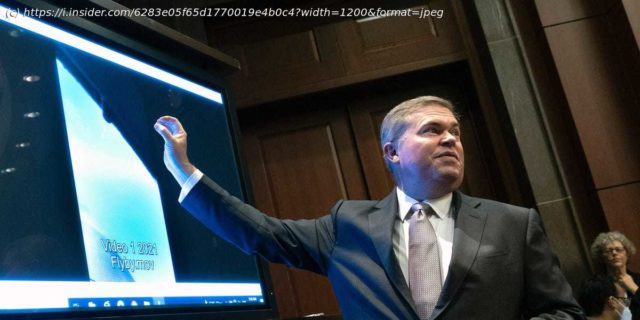Congress held an open congressional hearing on Tuesday on unidentified aerial phenomena, or UAPs — better known as unidentified flying objects — for the first …
Congress held an open congressional hearing on Tuesday on unidentified aerial phenomena, or UAPs — better known as unidentified flying objects — for the first time in five decades. The hearing, held before a US House Intelligence subcommittee, included testimony from defense officials following a nine-page report released last year, which investigated more than 140 instances of strange sightings by fighter aircraft instruments and pilots. Officials were only able to explain one of the incidents — a large, deflated balloon. Rep. Andre Carson, a Democrat from Indiana and chairman of the subcommittee, said at the start of the hearing that UAPs « are a potential national security threat, and they need to be treated that way. »
Unexplained objects have fascinated and puzzled people for decades, but studying them has often been dismissed as pseudoscience or tabloid fodder. As these mystery sightings reenter the mainstream, however, some researchers say they need to be investigated by scientists, not just the intelligence community, in order to find answers. Last year’s report confirmed the existence of unexplained aerial phenomenon, but prompted more questions than answers, Jacob Haqq-Misra, a research scientist at the Blue Marble Space Institute of Science, a non-profit that promotes space exploration, told Insider. Some science experts theorize that these mystery objects could be anything from drones to weather-related phenomena to artifacts to sensor glitches — or even the handiwork of aliens. But the report did not include enough data to conclusively make that determination. Since UAPs have long inspired conspiracy theories, researchers like Haqq-Misra believe the government should give scientists more access to data and allow inquiries to happen in the open, rather than behind closed doors.
Home
United States
USA — Science After Congress' first hearing on UFOs in 50 years, some scientists want...






